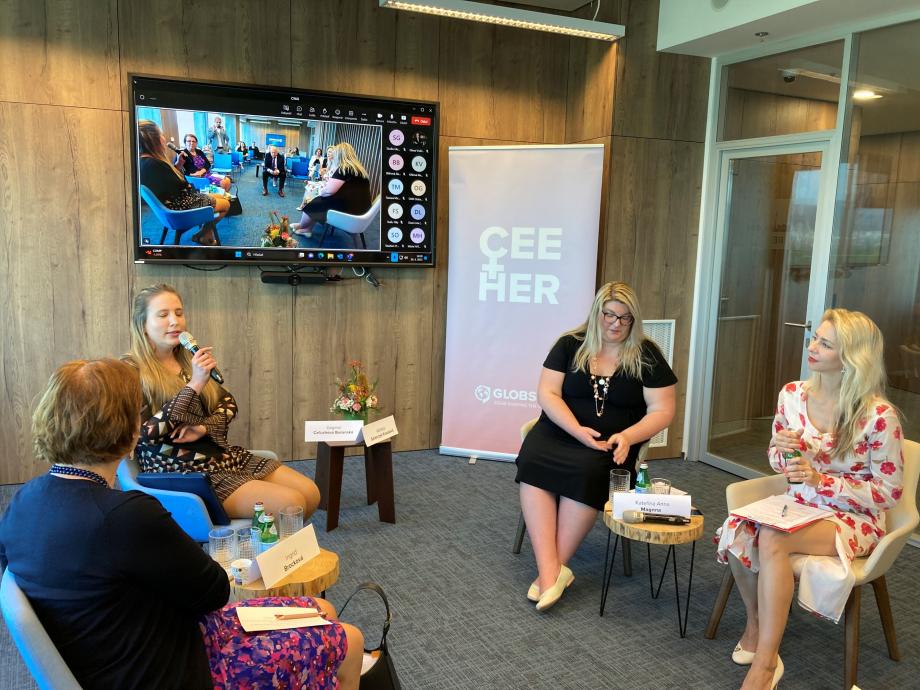Women in AI and Innovation: Event Summary

On June 26, 2023, GLOBSEC, under its CEE Her Initiative, in cooperation with Czech Women in AI (CWAI), organized an inspiring debate about the role of women in AI development and its related policymaking with expert discussions on technological innovations in the public and private sectors. The event was held in Bratislava, with in-person and online participation, highlighting the representation of women and men from the public and private sectors across Europe, the US, and beyond.
Speakers included Ingrid Brocková, State Secretary of the Slovak Ministry of Foreign and European Affairs, Dagmar Ceľuchová Bošanská, co-founder at Alistiq and AI and e-governance expert, and Alžbeta Solarczyk Krausová, AI law expert and Member of the European Commission and OECD AI Expert Groups. The debate was moderated by Kateřina Anna Magnna, Government Affairs Lead for Czechia, Slovakia, and Hungary, Microsoft.
Participants offered three main points of view. Firstly, Mrs Brocková, as an inspirational speaker, drew attention to her work at the Ministry to change processes and perceptions of women in diplomacy. She spoke on the importance of women’s presence and inclusion in the field of technology and innovation by stressing the use of horizontal and intersectional approaches to aid in catching up and growing the sector in Slovakia. Especially notable is the work in every institution. For example, the Ministry of Foreign and European Affairs deals with digital diplomacy as a newer portfolio. Yet, the technology and innovation sector cannot thrive if there is a deficiency of coordination. Today, Slovakia has a woman as the Chief Innovation Officer ensuring that processes are coordinated and communicated and that actions are aligned. However, Slovakia lacks a comprehensive talent strategy, potentially hampering the technology and innovation sector and women’s development in the field.
The discussion moved to Mrs Ceľuchová Bošanská, who, through an AI expert lens, introduced the benefits of AI personal assistance and universally interpretable data. Especially compelling is the case for developing these tools towards eventual universal electronic health records. Admittedly, the work in progress also exposes some GDPR and security challenges, reminding us of the complexity of enabling the use of AI tools.
Finally, Mrs Solarczyk Krausová approached the topic of AI from a regulative perspective. She stressed the excellent recent achievement for the comprehensive update of the EU AI Act, proposed by the European Commission and further developed by the European Parliament. According to Mrs Solarczyk Krausová, the EU institutions have been able to account for important ethical and fundamental rights issues with the future use of AI technology. The Act again shows that the EU can be a standard-setter for regulations that not harm but protect AI development and use. “The goal of these prohibitions is to make the companies ask the right questions.” With the EU being an influential actor in other multilateral international organizations, it should seek a global reach for its regulation.
The debate gave a multi-dimensional overview of steps taken in the private and public sectors (national and EU) towards AI technologies and their use. It also highlighted the value-added participation of women in the field, and the event served as an inspiration to other women.